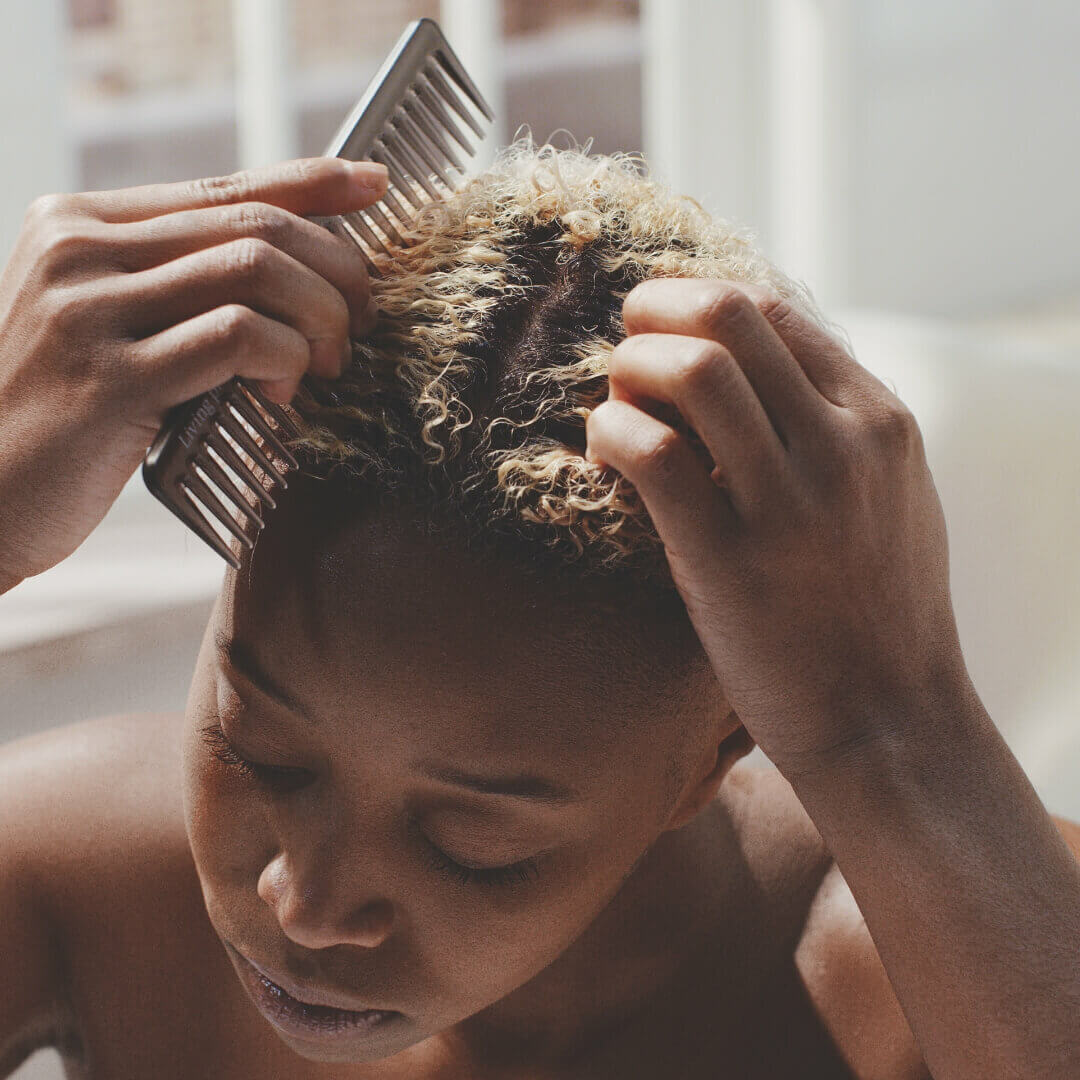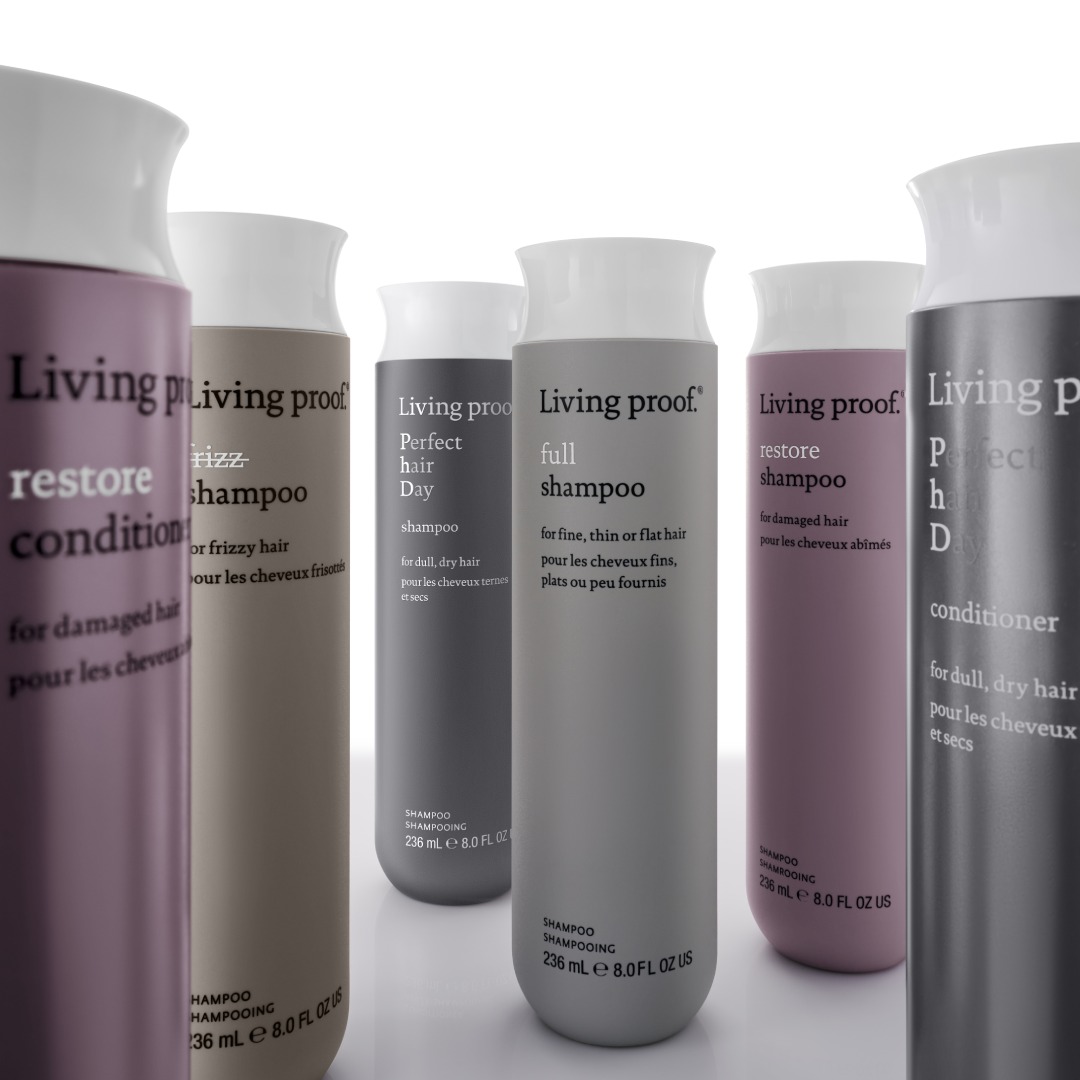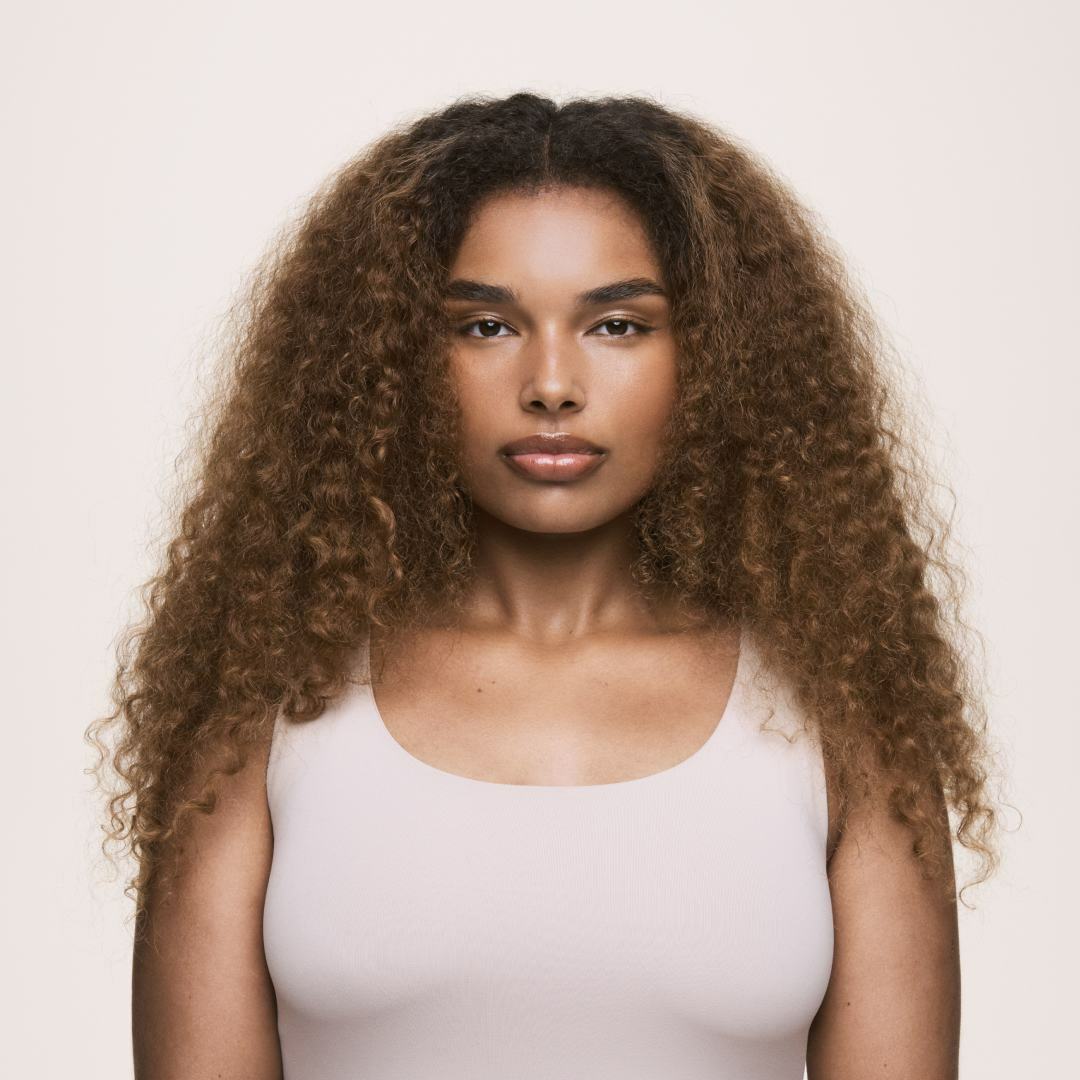
How to use scalp serum: your complete guide [+ 7 hair benefits]
Did you know that a healthy scalp is the foundation for beautiful hair? Like your skin and hair, your scalp needs the right care to stay balanced and nourished. That’s where scalp serums come in. These specially-formulated products are designed to break down buildup and deliver essential nutrients directly to your scalp, promoting healthier, stronger hair.
In this guide, we'll dive into everything you need to know about scalp serums, including their benefits and how to use them to get the best results.
What is scalp serum?
Scalp serums are treatments designed specifically to enhance the health of your scalp. Unlike regular hair products that focus on the hair strands, scalp serums target the root of the problem. These serums are packed with hydrating, calming, and anti-inflammatory ingredients, such as hyaluronic acid, which help moisturize the scalp, reduce irritation, and promote a healthy environment for hair growth.
Scalp serums serve several important functions. They help to break down buildup from styling products, sebum, and dead skin cells that can clog hair follicles. By keeping the scalp clean and nourished, scalp serums play a role in improving blood flow, delivering more oxygen and nutrients to the hair follicles, and fostering healthier hair growth. Many scalp serums also contain antioxidants and anti-fungal properties that protect the scalp from environmental stressors and maintain its overall health.
Scalp serum vs. hair oil: what’s the difference?
While both scalp serums and hair oils are designed to nourish and improve the overall health of your hair, they serve distinct purposes and offer different benefits. Understanding the differences between these two products can help you choose the right one for your specific haircare needs.
Scalp serum: targeted scalp care
Scalp serums are lightweight, fast-absorbing treatments formulated specifically for the scalp. They contain active ingredients that target the scalp’s health, aiming to create a balanced and nourished environment for hair growth. Scalp serums often include ingredients like peptides, hyaluronic acid, and botanical extracts that hydrate, soothe, and stimulate the scalp. They help break down buildup, improve blood flow, and support a healthy scalp microbiome, which can, in turn, promote stronger and healthier hair growth.
Hair oil: moisture and shine for hair strands
Hair oils, on the other hand, are typically heavier and designed to condition and add shine to the hair strands themselves. They are rich in nourishing oils such as argan, coconut, and jojoba, which help to seal moisture into the hair, reduce frizz, and enhance shine. Hair oils are excellent for adding hydration and smoothness, particularly to dry, damaged, or color-treated hair. While they can be applied to the scalp, their primary function is to improve the appearance and manageability of the hair’s lengths and ends.
Here's a quick comparison to help you understand the key differences between scalp serums and hair oils:
6 signs you could benefit from a scalp serum
Not sure if you need a scalp serum? Here are some telltale signs that your scalp might need a little extra care:
1. Dry, itchy, or flaky scalp
If you experience dryness, itchiness, or flakiness on your scalp, it could be a sign that it needs extra hydration and nourishment. Scalp serums can help soothe irritation and provide the necessary moisture to keep your scalp healthy and comfortable.
2. Dull-looking hair that lacks vitality
Hair that appears dull and lifeless can often be traced back to an unhealthy scalp. A well-formulated scalp serum can revitalize your scalp, improving blood flow and delivering essential nutrients that enhance the overall health and appearance of your hair.
3. Slow hair growth
If your hair growth seems slower than usual, it might be due to clogged hair follicles or a lack of proper nourishment. Scalp serums can help clear buildup and stimulate the scalp, encouraging healthier and faster hair growth.

4. Thinning Hair
Thinning hair can be a distressing issue, often linked to poor scalp health. Scalp serums with ingredients that strengthen hair follicles and support a balanced scalp environment can help reduce hair thinning and promote thicker, fuller hair.
5. Dry, brittle, or damaged hair
Hair that is dry, brittle, or damaged can benefit from the deep nourishment provided by scalp serums. These serums not only improve the health of your scalp but also contribute to stronger, more resilient hair strands.
6. Flat, fine hair
If your hair lacks volume and tends to fall flat, a scalp serum can help by improving the overall health of your scalp and hair follicles. Healthier follicles can lead to stronger hair that has more body and bounce.
7 benefits to using a scalp serum
Incorporating a scalp serum into your haircare routine can offer numerous benefits for both your scalp and hair. Here’s what you can gain:
1. Improved scalp health
Scalp serums can help balance oil production and soothe irritation, promoting a healthier scalp environment. By keeping your scalp well-nourished and hydrated, you can avoid many common scalp issues.
2. Enhanced hair growth
Many scalp serums contain ingredients that stimulate hair follicles, encouraging healthier and stronger hair growth over time. This can lead to thicker, more resilient hair.
3. Stronger Strands
Formulated with vitamins, peptides, and antioxidants, scalp serums nourish the scalp and strengthen hair follicles. This helps to reduce breakage and shedding, resulting in stronger, more robust hair strands.
4. Prevention of hair loss
Some scalp serums are designed to address underlying causes of hair loss, such as hormonal imbalances or nutrient deficiencies. By targeting these issues, scalp serums can help minimize hair thinning and loss.
5. Scalp Hydration
Providing essential hydration, scalp serums are particularly beneficial for those with dry or sensitive skin. They help alleviate itchiness, flakiness, and discomfort, ensuring your scalp remains moisturized and comfortable.
6. Protection against environmental damage
Certain scalp serums contain antioxidants that shield the scalp and hair follicles from environmental stressors like pollution and UV radiation. This protection helps maintain overall scalp health and supports healthier hair growth.
7. Delay of gray hairs
By nourishing hair follicles with essential nutrients and antioxidants, scalp serums can help delay the onset of premature graying, maintaining the natural color of your hair for longer.
How to use scalp serum
Using a scalp serum is straightforward and can easily be incorporated into your haircare routine. Follow these simple steps to get the most out of your scalp serum:
1. Perform a patch test
Before incorporating a new scalp serum into your routine, it’s essential to perform a patch test. Apply a small amount of serum to a discreet area of your scalp to check for any adverse reactions or irritation. This step ensures the product is suitable for your skin.
2. Split your hair into multiple sections
Start by dividing your hair into several sections. This ensures that the serum can be evenly distributed across your entire scalp.
3. Apply Serum
Using the dropper, apply 2–3 droppers full of serum directly onto the sectioned areas of your scalp. Be sure to target the roots and areas that need the most attention.
4. Gently work in the serum
Use your fingers to gently massage the serum into your scalp. This helps to stimulate blood flow and ensures that the serum is absorbed effectively. A gentle massage can also be relaxing and invigorating.
Note: application frequency
Depending on the specific serum you’re using, you may need to apply it anywhere from three times a week to every day. Always follow the instructions on the product label. Be mindful not to overuse the product, which can lead to an oily scalp.

Caring for your scalp is the key to achieving healthier, stronger hair. Living Proof’s new Scalp Care Density Serum offers targeted nourishment to transform your scalp health. Ready to see the difference? Try our Scalp Care Density Serum today and give your hair the foundation it needs.
Frequently asked questions
Disclaimer: These are general answers — actual results may vary depending on which scalp serum you use.
How do you apply scalp serum?
To effectively use scalp serum, part your hair into sections and apply the serum directly to the scalp. Massage it in gently with your fingertips to stimulate blood flow and absorption.
How often should you use a scalp serum?
For optimal results, use scalp serum as recommended on the product label. Typically, this can range from two to three times per week to daily use, depending on your specific needs and the instructions provided. For growth, using it every day is often recommended.
Do scalp serums promote hair growth?
While individual results may vary, scalp serums formulated with active ingredients like peptides, vitamins, and botanical extracts can help nourish the scalp, strengthen hair follicles, and promote healthier hair growth over time.
What does scalp serum do?
Scalp serum provides targeted nourishment to the scalp, helping with concerns like balancing oil production, improving circulation, and strengthening hair follicles. This results in healthier hair growth and a revitalized scalp environment.
Which is better, scalp serum or hair oil?
Scalp serum is specifically designed to target the scalp and address issues like dryness, irritation, and hair loss. Hair oil typically focuses on hydrating and conditioning the lengths and ends of the hair. Depending on your needs, both can be beneficial, but scalp serum may be more effective for addressing scalp-related concerns.
Related Articles

Does your hair get used to products? [Why you don’t actually have to swap out your shampoo + conditioner]
Read More
Which conditioner is right for your hair type? [expert advice]
Read More